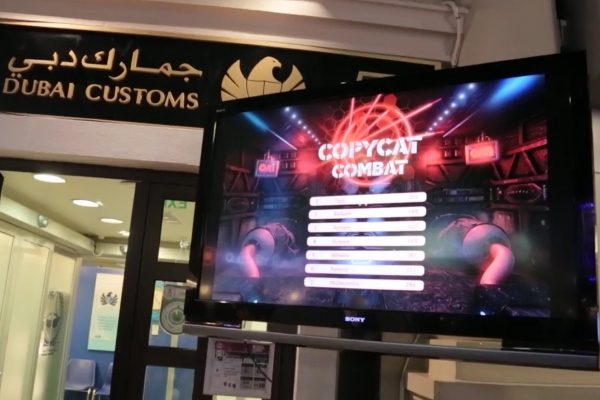
The United Arab Emirates is using virtual reality and gaming to raise awareness among children of the importance of protecting intellectual property rights.
The technology, borne out of a collaboration between the Middle East direct broadcast satellite provider OSN and Dubai Customs, has resulted in a 60 second virtual reality game named Copycat Combat, which is an educational initiative to highlight the threats of piracy and counterfeit products.
The partners, which already work together to tackle imports of illegal satellite and IPTV devices, said Copycat Combat was the world’s first content protection virtual reality game.
“This is super exciting for us at OSN, to be first in the world to launch a content protection game that helps children to understand the massive threats that the entertainment industry faces from content theft,” said Sophie Moloney, chief legal officer at OSN. “What’s more, the game is a lot of fun and children can hopefully come away with the thought that content is really precious and worth protecting.”
The game is based on a ‘matrix-style’ world where the bad guys are intellectual property and content thieves who use laser rays to zap OSN’s collection of movies, TV series, kids shows and sports events. The game player, as the good-guy hero, uses armoured gloves to shield the content from the laser rays. The game is described as fast-paced, requiring quick reflexes and accuracy.
Copycat Combat aims to highlight the consequences of piracy and the impact on the content people consume. If the player is able to stop the bad guys stealing the content, they win and are thanked for their actions.
Aimed at children between five and 12 years of age, Copycat Combat will be available at shopping malls and other public spaces managed by OSN, and will also be toured through schools.
The initiative is based on the latest advanced applications in the virtual reality field, said Ahmed Mahboob Musabih, director or Dubai Customs. “The result is Copycat Combat, which will not only raise awareness about the importance of intellectual property but will also help kids innovate.”
He added that it was important to protect IP early and proactively otherwise “you might have to protect it defensively later”. “Raising awareness among children around the protection of intellectual property is a priority to us. For this we keep developing and innovating to spread the knowledge and share he experience to protect our society from the hazards of these illegal counterfeit products.”
Piracy and IP infringement is a global problem for the entertainment industry, with the Middle East region losing hundreds of millions from the crime, run by organised criminal entities, said Martin Stewart, chief executive of OSN. “Illegal theft of content is the biggest danger of the future of creative industries across the world. The threat of piracy is on recorded music, films, TV shows and video games. Anything that people can put online is capable of being stolen. And let’s not forget illegal satellite boxes and illegal streaming. There are all sorts of different ways that content can be stolen.”
He added: “It is hurting too many people whose jobs depend upon creating the content. If we do not make sure that people are fairly rewarded then there will not be that content in the future, so it is important to pass a message on about the importance of content and intellectual property and that’s why we are targeting the youth through a game called Copycat Combat. A production of educational materials, such as Copycat Combat, lets people understand the consequences of their actions.”
Numerous surveys have found that younger people are more inclined to purchase counterfeit or pirated products. A European report launched in April found the younger generation was most accepting of buying counterfeits, with 15 per cent admitting to intentionally purchasing a fake. More than 70 per cent said this behaviour was attributed to price. The survey also found that the younger generation had the lowest level of ‘good’ understanding of IP (64 per cent) compared with other age groups.
©
SecuringIndustry.com





